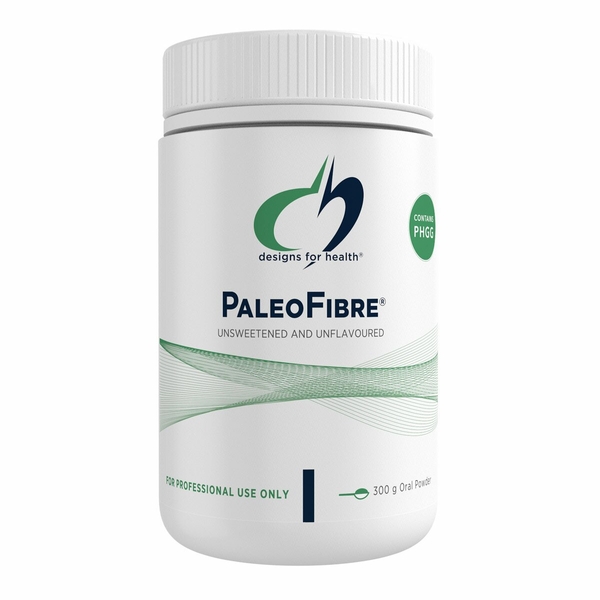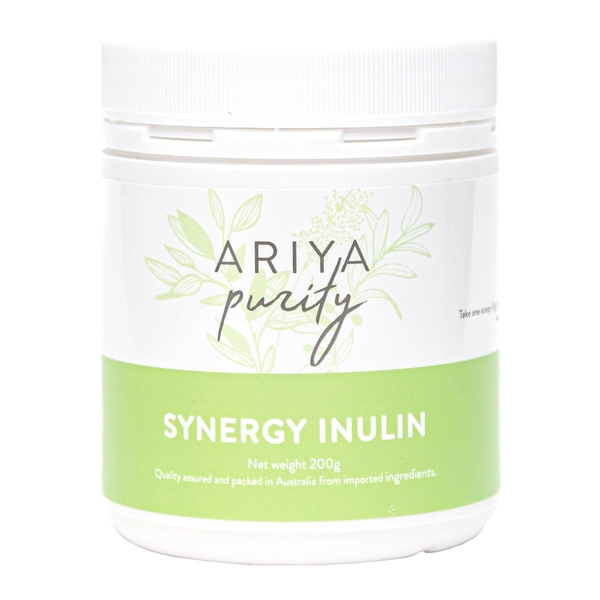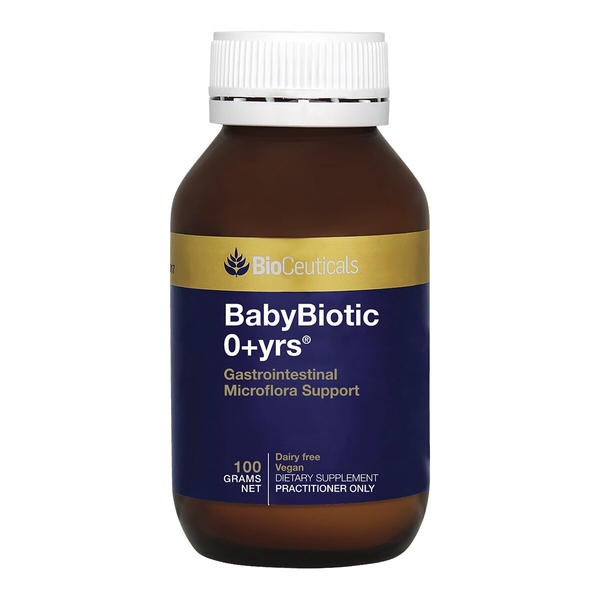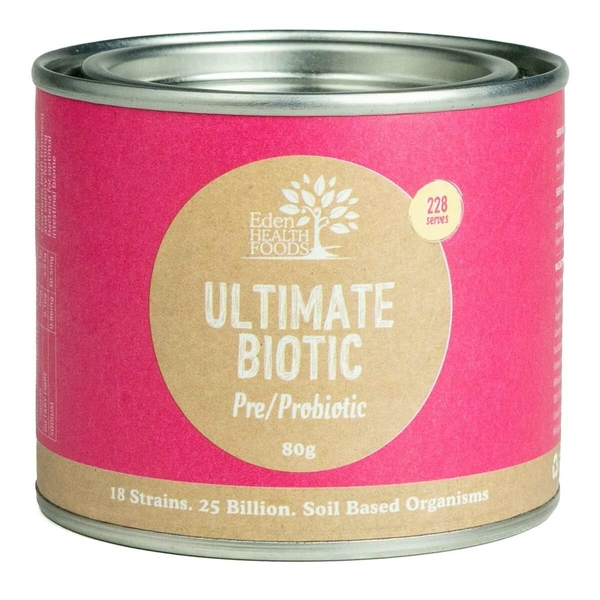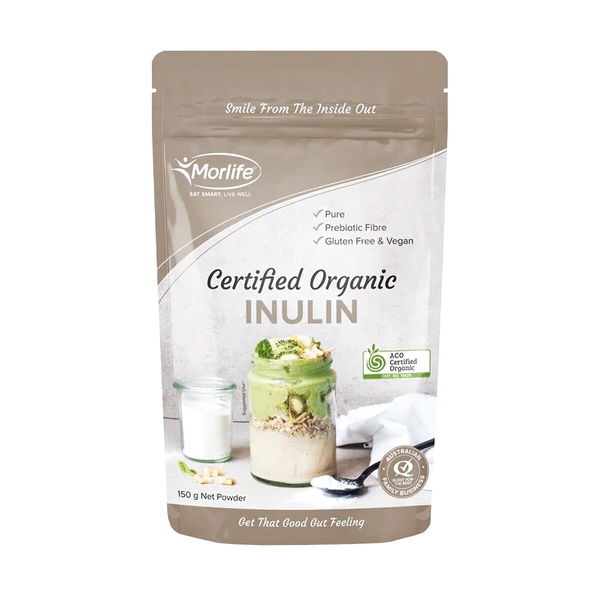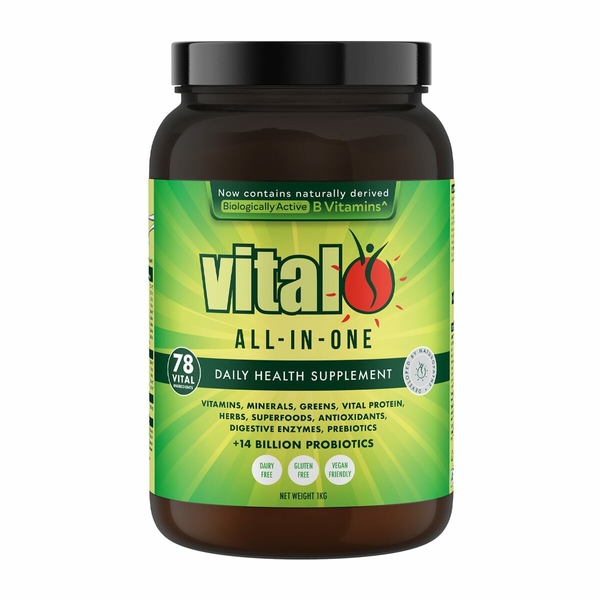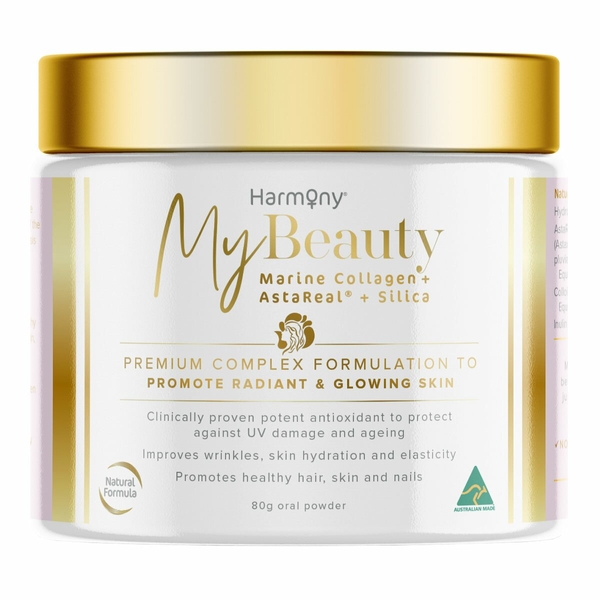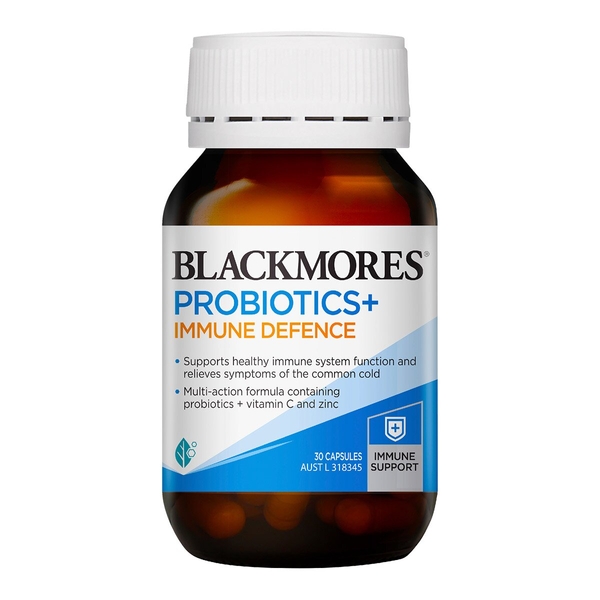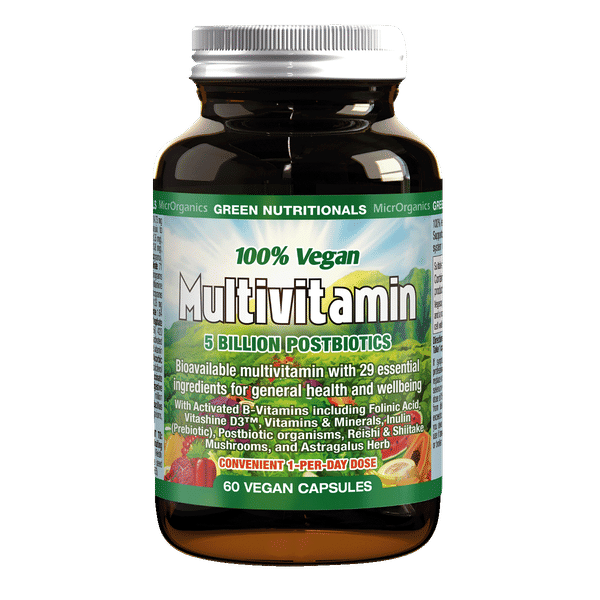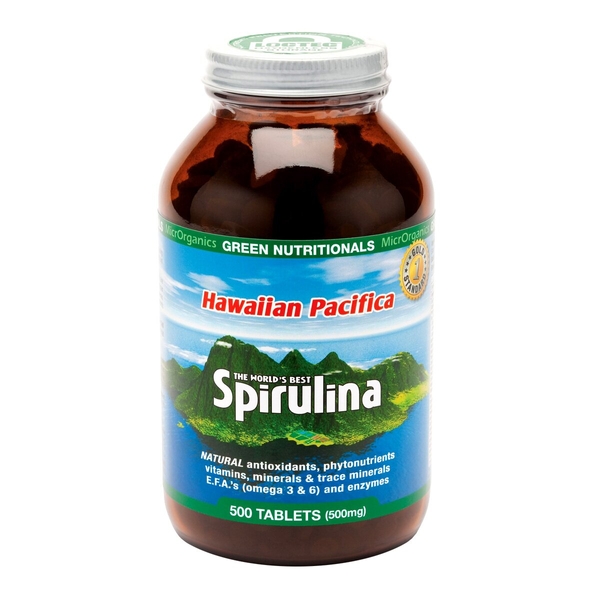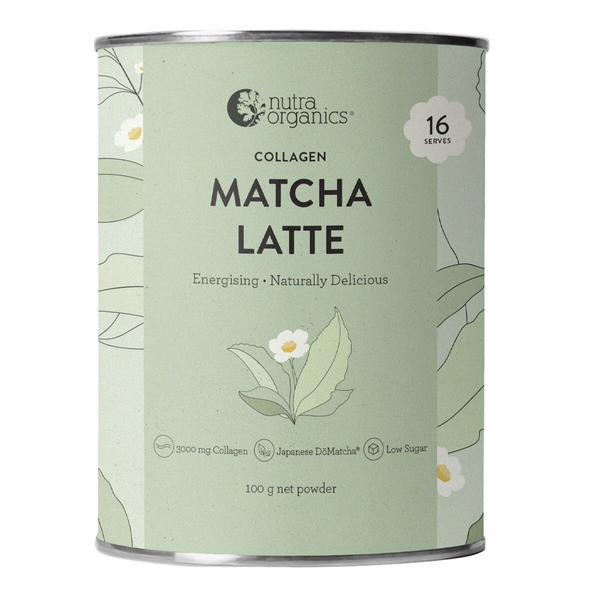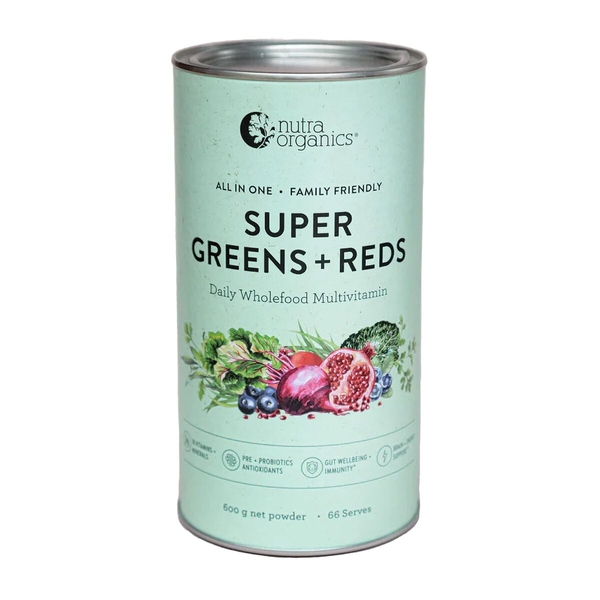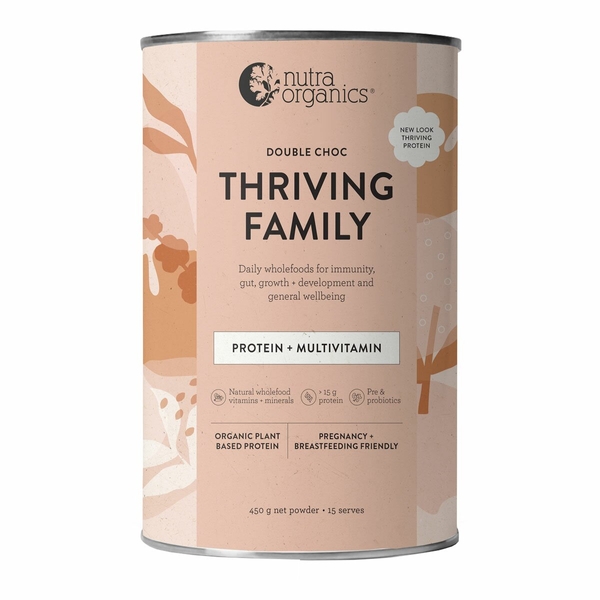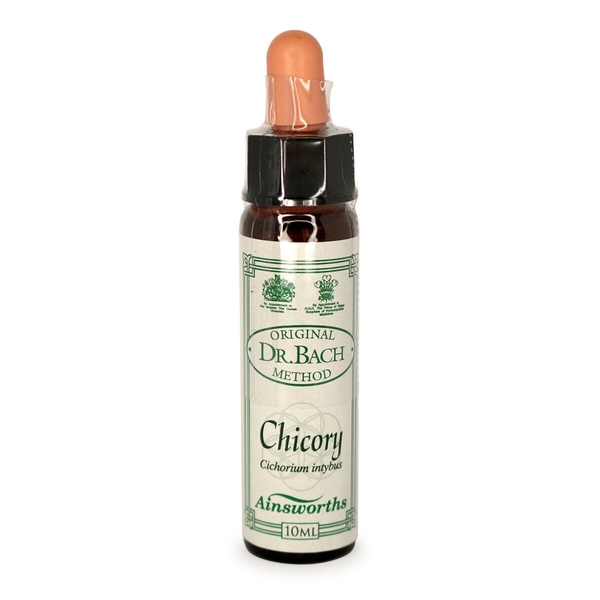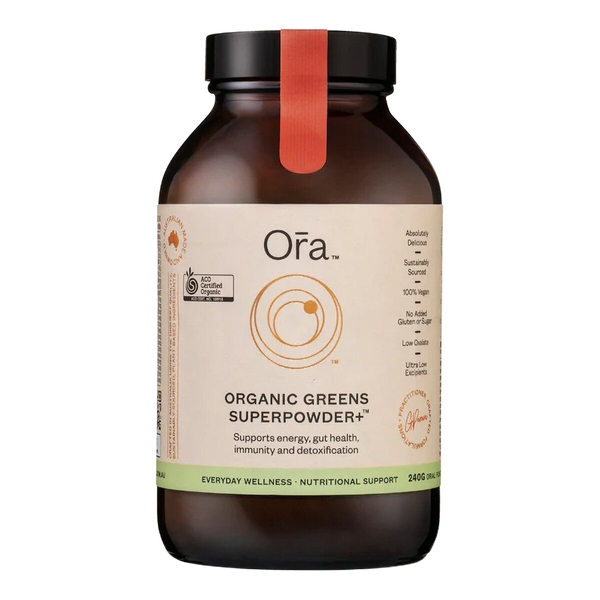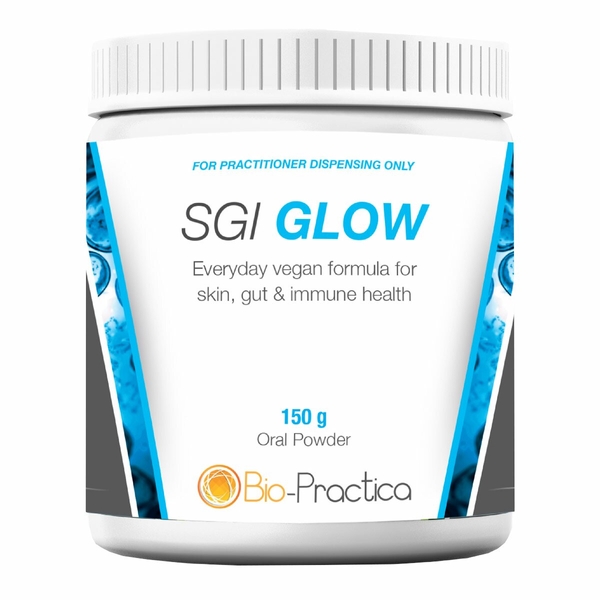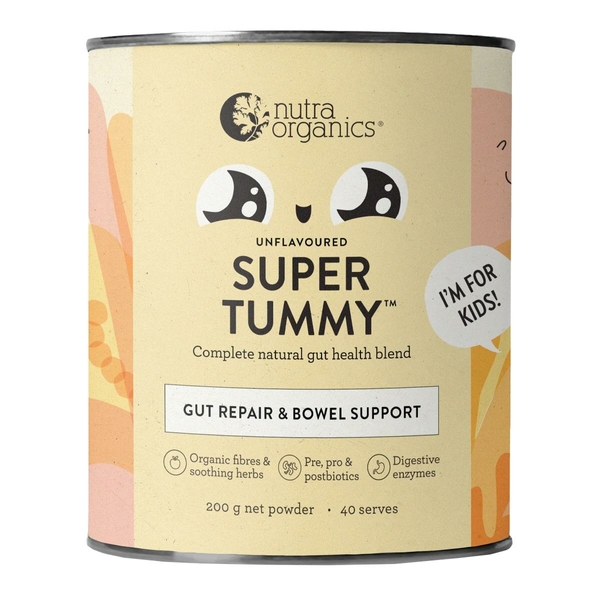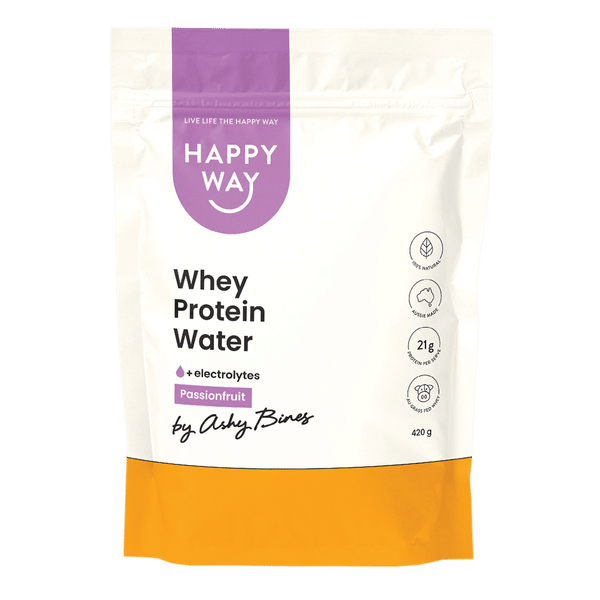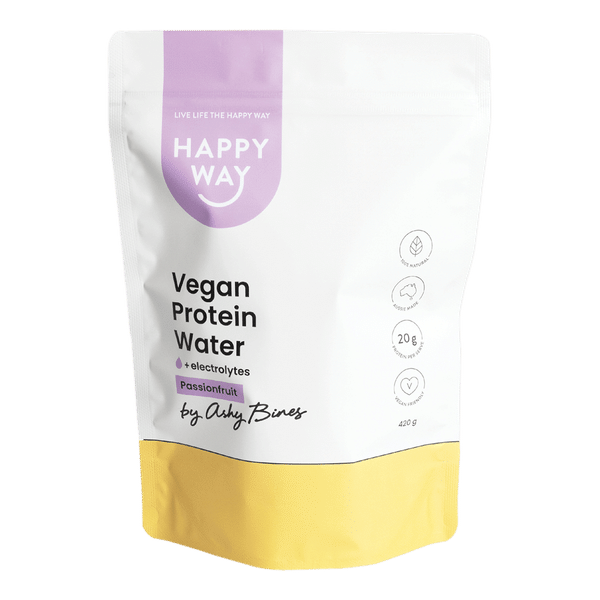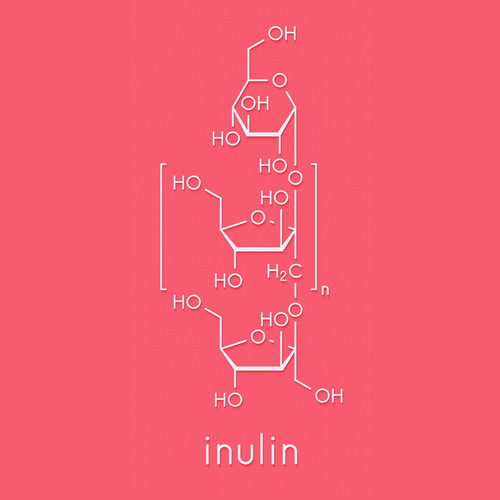
Inulin
Scientific names: Beta(2-1)fructans
Alternate names: Chicory Extract, Chicory Inulin, Dahlia Extract, Dahlia Inulin, Extrait de Chicorée, Extrait de Dahlia, Inulina, Inuline, Inuline de Chicorée, Inuline de Dahlia, Long-chain Oligosaccharides, Oligosaccharides, Oligosaccharides à Chaîne Longue, Prebiotic, Prébiotique
Actions: Anti-inflammatory, Hypolipidemic, Prebiotic, Weight loss
Background
Inulin is a type of prebiotic. It's not digested or absorbed in the stomach. It stays in the bowel and helps certain beneficial bacteria to grow.
Inulin is a starchy substance found in a wide variety of fruits, vegetables, and herbs, including wheat, onions, bananas, leeks, artichokes, and asparagus. The inulin that is used in supplements most commonly comes from soaking chicory roots in hot water.
People commonly use inulin by mouth for weight loss, constipation, and diabetes. It's also used for high blood fats, including cholesterol and triglycerides, and many other conditions, but there is no good scientific evidence to support most of these uses.
Inulin is a starchy substance found in a wide variety of fruits, vegetables, and herbs, including wheat, onions, bananas, leeks, artichokes, and asparagus. The inulin that is used in supplements most commonly comes from soaking chicory roots in hot water.
People commonly use inulin by mouth for weight loss, constipation, and diabetes. It's also used for high blood fats, including cholesterol and triglycerides, and many other conditions, but there is no good scientific evidence to support most of these uses.
Safety Safety definitions
When taken by mouth: Inulin is likely safe for most people in the amounts found in foods. It is possibly safe in adults when taken as a supplement, short-term. Doses of 8-18 grams daily have been used safely for up to 24 weeks. The most common side effects include gas, bloating, diarrhea, constipation, and cramps. These side effects are more severe with high doses of inulin (more than 30 grams).
Children: Inulin is likely safe in children in the amounts found in foods. It is possibly safe for children when taken by mouth as a medicine, short-term. Inulin is possibly safe when used as part of infant formula, short-term.
Special Precautions & Warnings:
Pregnancy and breast-feeding: Inulin is likely safe to use when pregnant or breast-feeding in amounts found in food. There isn't enough reliable information to know if inulin is safe to use in larger amounts as medicine when pregnant or breast-feeding. Stay on the safe side and avoid use.Children: Inulin is likely safe in children in the amounts found in foods. It is possibly safe for children when taken by mouth as a medicine, short-term. Inulin is possibly safe when used as part of infant formula, short-term.
Effectiveness
NatMed Pro rates effectiveness based on scientific evidence according to the following scale: Effective, Likely Effective, Possibly Effective, Possibly Ineffective, Likely Ineffective, Ineffective, and Insufficient Evidence to Rate.
Possibly effective Effectiveness definitions
- Constipation. Taking inulin by mouth seems to help relieve constipation in some children and adults. It increases the number of stools by up to about one per week. But it might not reduce discomfort.
- Diabetes. Taking inulin by mouth along with antidiabetes drugs might improve blood sugar levels in some people with diabetes, short-term. But it's not clear if it helps long-term.
- Obesity. Taking inulin by mouth might increase short-term weight loss. But it's not clear if it helps with long-term weight loss or weight maintenance in people who are overweight or obese.
Dosing & administration
Inulin is found in a wide variety of foods, including wheat, onions, bananas, leeks, artichokes, and asparagus. Inulin supplements have most often been used by adults in doses of 10-40 grams by mouth daily, for 4-8 weeks. Various combination products are also available. Speak with a healthcare provider to find out what type of product and dose might be best for a specific condition.
Interactions with pharmaceuticals
Medications for diabetes (Antidiabetes drugs)
Interaction Rating=Minor Be watchful with this combination.
Inulin might lower blood sugar levels. Taking inulin along with diabetes medications might cause blood sugar to drop too low. Monitor your blood sugar closely.
Interactions with herbs & supplements
Calcium: Inulin might change the absorption of calcium. But most research shows that inulin doesn't affect the absorption of calcium from foods.
Herbs and supplements that might lower blood sugar: Inulin might lower blood sugar. Taking it with other supplements with similar effects might lower blood sugar too much. Examples of supplements with this effect include aloe, bitter melon, cassia cinnamon, chromium, and prickly pear cactus.
Magnesium: Inulin might increase the amount of magnesium that the body absorbs.
Herbs and supplements that might lower blood sugar: Inulin might lower blood sugar. Taking it with other supplements with similar effects might lower blood sugar too much. Examples of supplements with this effect include aloe, bitter melon, cassia cinnamon, chromium, and prickly pear cactus.
Magnesium: Inulin might increase the amount of magnesium that the body absorbs.
Interactions with foods
There are no known interactions with foods.
Products
View all productsPer 5 g:
- Cichorium intybus (root) (Chicory)
- Cyamopsis tetragonoloba (Partially hydrolysed guar gum (PHGG))
- Bambusa vulgaris (fibre)
- Malus (fibre) powder (Apple)
- Glucomannan powder
- Linum usitatissimum (seed) flour (Flaxseed)
- Plantago ovata (husk) (Psyllium)
- Prunus domestica powder (Prune)
- Daucus carota powder (Carrot)
- Apple pectin
- Vaccinium macrocarpon
- Acacia sp. (gum)
Practitioner product
Per 1.5 g:
- Cichorium intybus (root) (Chicory)
- Bifidobacterium animalis ssp. lactis (CUL 34) 1 billion CFU
- Bifidobacterium breve (M-16V) 1.5 billion CFU
- Bifidobacterium bifidum (CUL 20) 50 million CFU
- Bifidobacterium infantis (M-63) 500 million CFU
- Bifidobacterium longum (BB536) 1 billion CFU
- Lactobacillus rhamnosus GG 1 billion CFU
- Bifidobacterium bifidum (CUL 73) 950 million CFU
- Lactobacillus fermentum (CUL 67) 1 billion CFU
- Tapioca
- Calcium phosphate
- Zea mays (Corn starch)
- Corn maltodextrin
- Potato maltodextrin
Practitioner product
Per 0.35 g:
- Cichorium intybus (root) (Chicory)
- Lactobacillus rhamnosus
- Bifidobacterium longum
- Bifidobacterium bifidum
- Lactobacillus acidophilus
- Lactobacillus casei
- Lactobacillus acidophilus (DDS-1)
- Larix occidentalis (arabinogalactan) (Larch)
- Lactobacillus fermentum
- Ulmus rubra (bark inner) powder
- Plantago ovata (husk) (Psyllium)
- Pediococcus acidilactici
- Bifidobacterium infantis
- Streptococcus thermophilus
- Lactobacillus plantarum
- Lactobacillus bulgaricus
- Lactobacillus salivarius
- Entero-coccus faecium
- Bacillus subtilis
- Apple pectin
- Lactobacillus gasseri
- Lactobacillus sporogenes
RRP: $89.95$85.45Save: 5%
Create account
Per 10 g:
- Inulin (Dietary fibre) 800 mg
- Arthrospira platensis (Spirulina) 1 g
- Chlorella pyrenoidosa powder 333 mg
- Wheatgrass powder 333 mg
- Lactobacillus acidophilus 5 billion CFU
- Bifidobacterium bifidum 3 billion CFU
- Bifidobacterium lactis 5 billion CFU
- Bifidobacterium longum 1 billion CFU
- Cynara scolymus powder 500 mg
- Hordeum vulgare 200 mg
- Malus (Apple) 200 mg
- Brassica oleracea var. acephala (leaf & sprout) powder (Kale) 100 mg
- Ananas comosus (Pineapple) 240 mg
- Spinacia oleracea (Spinach) 67 mg
- Beta glucan 50 mg
- Resveratrol 10 mg
- Ananas comosus (Pineapple oil) 65 mg
- Linum usitatissimum (seed) (Flaxseed) 400 mg
- Oryza sativa (Rice bran) 500 mg
- Pea protein isolate 1 g
- R-alpha lipoic acid 67 mg
- Thiamine hydrochloride (Vitamin B1) 400 µg
- Niacinamide (Vitamin B3) 5.3 mg
- Pyridoxine hydrochloride (Vitamin B6) 567 µg
- Riboflavin (Vitamin B2) 434 µg
- Pantothenic acid (Vitamin B5) 1.7 mg
- Cyanocobalamin (Vitamin B12) 0.8 µg
- Ergocalciferol (Vitamin D) 3.8 µg
- Ascorbic acid (Vitamin C) 333 mg
- d-alpha-Tocopheryl acid succinate 100 mg
- Ubidecarenone (Coenzyme Q10) 8 mg
- Copper gluconate 225 µg
- Potassium phosphate dibasic 104 mg
- Folic acid 67 µg
- Biotin 10 µg
- Silica - colloidal anhydrous 14 mg
- Magnesium citrate 42 mg
- Zinc amino acid chelate 10 mg
- Chromium picolinate 10 µg
- Calcium citrate 132 mg
- Manganese amino acid chelate 1.4 mg
- Selenomethionine 30 µg
- Beta-carotene carotenoids (Vitamin A) 1.7 mg
- Citrus bioflavonoids extract 500 mg
- Citric acid anhydrous 150 mg
- Rosmarinus officinalis powder 68 mg
- Taraxacum officinale ext. 33 mg
- Vaccinium myrtillus powder 200 mg
- Glycyrrhiza glabra powder 67 mg
- Crataegus monogyna ext. 29 mg
- Astragalus membranaceus ext. 67 mg
- Vitis vinifera ext. 67 mg
- Camellia sinensis ext. 67 mg
- Ganoderma lucidum powder 21 mg
- Lentinula edodes powder 21 mg
- Aloe barbadensis ext. 500 mg
- Zingiber officinale powder 67 mg
- Eleutherococcus senticosus ext. 1 g
- Centella asiatica ext. 67 mg
- Withania somnifera ext. 67 mg
- Silybum marianum ext. 67 mg
- Arctium lappa ext. 21 mg
- Rosa canina powder 168 mg
- Lycium barbarum 33 mg
- Beta vulgaris (root) powder (Beetroot) 167 mg
- Daucus carota powder (Carrot) 83 mg
- Carica papaya (Papain) 250 mg
- Lecithin 725 mg
- Laminaria digitara (Kelp) 8 mg
- Natural vanilla flavour
- Natural pineapple flavour
- Thaumatin
- Stevia rebaubiana
- Luo Han Guo (fruit) ext. (Monk fruit)
- Xanthan gum
- Brassica oleracea var. italica powder 150 mg
- Malpighia glabra ext. 267 mg
- Theobroma cacao powder 100 mg
1 kg
RRP: $247.01$160.56Save: 35%
Create account
RRP: $51.58$41.26Save: 20%
Create account
Per capsule:
- Inulin (Dietary fibre) 100 mg
- Bifidobacterium animalis ssp. lactis (BI-04) 2 billion CFU
- Lactobacillus acidophilus (CUL 60) 6.75 billion CFU
- Lactobacillus acidophilus (CUL 21) 6.75 billion CFU
- Bifidobacterium bifidum (CUL 20) 225 million CFU
- Bifidobacterium animalis ssp. lactis (CUL 34) 4.275 billion CFU
- Ascorbic acid (Vitamin C) 200 mg
- Zinc citrate 16.2 mg equiv. zinc 5 mg
RRP: $32.99$26.39Save: 20%
Create account
Per capsule:
- Inulin (Dietary fibre) 100 mg
- Zinc amino acid chelate 17.5 mg equiv. zinc 3.5 mg
- Mecobalamin (Vitamin B12) 2.4 μg
- Cholecalciferol 1.5 mg equiv. vitamin D3 150 IU
- Ascorbic acid (Vitamin C) 22.5 mg
- d-alpha-Tocopheryl acid succinate 4.62 mg equiv. vitamin E 5.6 IU
- Calcium citrate 134.73 mg equiv. calcium 32.5 mg
- Magnesium citrate 123.73 mg equiv. magnesium 20 mg
- Manganese amino acid chelate 13.8 mg equiv. manganese 1.38 mg
- Selenomethionine 44 μg equiv. selenium 17.72 μg
- Silicon dioxide 32.1 mg equiv. silicon 15 mg
- Chromium picolinate 71 μg equiv. chromium 8.8 μg
- Biotin 7.5 μg
- Thiamine hydrochloride (Vitamin B1) 380 μg equiv. thiamine 300 μg
- Riboflavin 5-phosphate sodium (Activated B2) 550 μg equiv. riboflavin 400 μg
- Nicotinamide (Vitamin B3) 2.75 mg equiv. nicotinic acid 1.25 mg
- Calcium pantothenate (Vitamin B5) 1.64 mg equiv. pantothenic acid 1.51 mg
- Pyridoxal 5-phosphate monohydrate (P5P) 660 μg equiv. pyridoxine 420 μg
- Calcium folinate (Activated folate) 108 μg equiv. folinic acid 100 μg
- Lactobacillus acidophilus 100 million
- Lactobacillus rhamnosus 1.2 billion
- Lactobacillus paracasei 1 billion
- Lactobacillus plantarum 1 billion
- Bifidobacterium animalis ssp. lactis 1.7 billion
- Astragalus membranaceus ext. 6 mg
- Lentinula edodes ext. 10 mg
- Ganoderma lucidum ext. 10 mg
- Beta-carotene (Carotenoids) 8.5 mg VBAF equiv. beta-carotene 1.7 mg
RRP: $47.20$40.12Save: 15%
Create account
Per 5 g:
- Inulin (Dietary fibre)
- Marine collagen peptides 250 mg
- Lepidium meyenii (root) powder
- Lactobacillus rhamnosus (LR-32)
- Bifidobacterium longum (BL-05)
- Zinc
- Cannabis sativa powder 520 mg
- Arthrospira platensis (Spirulina) 370 mg
- Linum usitatissimum (seed) flour (Flaxseed) 250 mg
- Wheatgrass powder
- Sunflower lecithin
- Citrus limon (juice) (Lemon)
- Ananas comosus (Pineapple)
- Ascorbic acid (Vitamin C)
- Euterpe oleracea (berry) ext. (Acai)
- Chlorella pyrenoidosa powder
- Lycopersicon esculentum (Tomato)
- Apple pectin
- Beta vulgaris (root) powder (Beetroot)
- Citric acid anhydrous
- Citrullus lanatus (Watermelon)
- Fragaria ananassa (juice) powder (Strawberry)
- Garcinia mangostana (fruit) powder
- Punica granatum juice dry
- Carica papaya (fruit) powder
- Vaccinium macrocarpon (fruit) powder
- Natural vanilla flavour
- Lycium barbarum (fruit)
- Aristotelia chilensis (Maqui berry)
- Silybum marianum powder
- Astragalus membranaceus (root) powder
- Equisetum arvense (herb) powder
- Laminaria digitara (Kelp)
- Silica - colloidal anhydrous
- Daucus carota powder (Carrot)
- Camellia sinensis powder
- Withania somnifera (root) powder
- Eleutherococcus senticosus (root) powder
- Echinacea purpurea (root) powder
- Melissa officinalis powder
- Taraxacum officinale (leaf) powder
- Zingiber officinale (root) powder
- Rosa canina powder
- Vaccinium myrtillus (fruit) powder
- Ulmus rubra (bark) powder
- Mushroom powder
- Kakadu plum powder
- Calcium pantothenate (Vitamin B5)
- Panax ginseng powder
- Curcuma longa (root) powder
- Backhousia citriodora (leaf)
- Thaumatin
- Ananas comosus (Bromelain)
- Protease
- Phyllanthus emblica (fruit) powder
- Morindae officinalis (fruit) powder
- Marine algae
- Malpighia glabra (fruit) powder
- Medicago sativa 200 mg
- Sambucus nigra (fruit)
- Vaccinium corymbosum (fruit) powder
- Hordeum vulgare powder 200 mg
- Salvia hispanica (seed) powder
RRP: $39.95$33.96Save: 15%
Create account
RRP: $81.74$69.48Save: 15%
Create account
Per 6 g:
- Inulin (Dietary fibre)
- Hydrolysed collagen
- Camellia sinensis 1.32 g
- Pouteria lucuma (fruit) powder
- Coconut medium-chain triglyceride (Coconut MCT)
- Hippophae rhamnoides
- Natural vanilla flavour
- Siraitia grosvenorii (Monk fruit)
RRP: $34.95$29.71Save: 15%
Create account
Per 9 g:
- Inulin (Dietary fibre)
- Chlorella pyrenoidosa powder
- Brassica oleracea var. acephala (leaf) powder (Kale)
- Medicago sativa
- Brassica oleracea var. italica (Broccoli)
- Spinacia oleracea (Spinach)
- Green banana
- Bacillus coagulans (GBI-30)
- Arthrospira platensis (Spirulina)
- Laminaria digitara (Kelp)
- Euterpe oleracea (berry) ext. (Acai)
- Vaccinium corymbosum
- Malpighia glabra
- Beta vulgaris
- Punica granatum juice dry
- Lycium chinese
- Golden pea protein (sprout) bio-fermented
- Apple pectin
- Rubus idaeus (berry)
- Fragaria ananassa (Strawberry)
- Hippophae rhamnoides
- Lycopersicon esculentum
- Arctic sea algae
- Sea salt
- Sunflower seed extract
- Ananas comosus (Pineapple)
- Citrus limon (Lemon)
- Linum usitatissimum (seed) (Flaxseed)
- Malus (Apple)
- Lepidium meyenii
- Natural flavours
- Silybum marianum
- Equisetum arvense
- Centella asiatica
- Glycyrrhiza glabra (root)
- Althaea officinalis (root)
- Melissa officinalis
- Taraxacum officinale (leaf)
- Zingiber officinale (root)
- Withania somnifera
- Aloe barbadensis (leaf)
- Panax ginseng
- Pumpkin powder
- Sweet potato powder
- Sunflower seed
- Vaccinium macrocarpon
- Grifola frondosa (mushroom)
- Lentinula edodes (mushroom)
- Myrciaria dubia (fruit) powder (Camu Camu)
- Protease
- Amylase enzyme
- Lipase
- Cellulase
- Lactase
- Mesquite (pod) powder
- Thaumatin
- Prunus salicina (Queen Garnet plum)
- Chlorella pyrenoidosa powder
RRP: $139.95$118.97Save: 15%
Create account
Per serve (Double Choc):
- Inulin (Dietary fibre)
- Golden pea protein (sprout) bio-fermented
- Oryza sativa (Brown rice protein)
- Natural flavours
- Arctic sea algae
- Linseed
- Apple pectin
- Curry leaf extract
- Psidium guajava (Guava)
- Phyllanthus emblica
- Bixa orellana (seed)
- Ocimum tenuiflorum
- Citrus limon (Lemon)
- Bacillus coagulans (GBI-30)
- Thaumatin
- Theobroma cacao (Cocoa powder)
450 g Double Choc
RRP: $57.95$49.26Save: 15%
Create account
Per 8 g:
- Inulin (Dietary fibre)
- Arthrospira platensis (Spirulina) 1.68 g
- Wheatgrass powder 1.12 g
- Medicago sativa powder 160 mg
- Hordeum vulgare powder 160 mg
- Chlorella pyrenoidosa powder
- Spinacia oleracea (Spinach) 80 mg
- Brassica oleracea var. acephala (leaf) powder (Kale) 80 mg
- Brassica oleracea var. italica (sprout) powder
- Pea (fibre) sprouted
- Lepidium meyenii (root) powder
- Saccharomyces cerevisiae (boulardii) (SB) 200 mg
- Tremella fuciformis powder 200 mg
- Pouteria lucuma (fruit) powder
- Oryza sativa (Brown rice protein)
- Lentinula edodes powder 160 mg
- Quinoa (sprout) powder
- Malpighia glabra powder 120 mg
- Grifola frondosa powder 80 mg
- Schisandra chinensis powder 80 mg
- Stevia rebaubiana
- Beta vulgaris (root) powder (Beetroot)
- Daucus carota juice dry
- Davidson plum powder
- Backhousia citriodora (leaf) powder
- Kakadu plum powder 80 mg
- Banana resistant starch powder
- Tasmannia lanceolata powder
- Citrus australasica
RRP: $69.95$62.95Save: 10%
OOS at supplier
Create account
Due back 23/05
Per 5 g:
- Inulin (Dietary fibre)
- Arthrospira platensis (Spirulina)
- Lentinula edodes powder
- Saccharomyces cerevisiae (SB) 125 mg
- Quercetin dihydrate 250 mg
- Grifola frondosa powder
- Medicago sativa powder
- Hordeum vulgare (leaf) powder (Barley)
- Wheatgrass powder
- Green banana starch
- Pea (fibre) sprouted
- Malpighia glabra powder
- Zinc sulphate
- Oryza sativa (Brown rice protein fermented)
- Stevia rebaubiana
- Chlorella vulgaris powder
Practitioner product
Per 5 g (Unflavoured):
- Inulin (Dietary fibre)
- Green banana starch
- Cyamopsis tetragonoloba (Partially hydrolysed guar gum (PHGG))
- Apple pectin
- Fructooligosaccharides
- Arctic sea algae
- Protease
- Amylase enzyme
- Lipase
- Cellulase
- Lactase
- Hippophae rhamnoides
- Curcumin (Turmeric)
- Zingiber officinale
- Melissa officinalis
- Glycyrrhiza glabra (root)
- Bacillus coagulans (GBI-30)
- Psidium guajava (leaf)
- Vitis vinifera
- Thaumatin
RRP: $44.95$38.20Save: 15%
Create account
Per 30 g (Passionfruit):
- Cichorium intybus (root) (Chicory)
- Hydrolysed bovine collagen peptides 23.4 g
- Whey protein concentrate
- Natural flavours
- Coconut water powder
- Medium chain triglycerides (MCT)
- Potassium citrate
- Magnesium citrate
- Sodium chloride (Salt)
- Calcium citrate
- Ascorbic acid (Vitamin C)
- Citric acid anhydrous
- Stevia rebaubiana
- Thaumatin
- Beta-carotene
- Riboflavin (Vitamin B2)
RRP: $59.95$53.96Save: 10%
Create account
Per 30 g (Passionfruit):
- Cichorium intybus (root) (Chicory)
- Hydrolysed pea protein
- L-alanine
- Glycine
- L-valine
- L-leucine
- L-isoleucine
- L-proline
- L-phenylalanine
- L-tyrosine
- L-serine
- L-threonine
- L-methionine
- L-arginine
- L-histidine
- L-lysine
- L-aspartic acid
- L-glutamic acid
- L-tryptophan
- L-cysteine
- Natural flavours
- Acacia sp. (gum)
- Coconut water powder
- Medium chain triglycerides (MCT)
- Potassium citrate
- Magnesium citrate
- Sodium chloride (Salt)
- Calcium citrate
- Ascorbic acid (Vitamin C)
- Citric acid anhydrous
- Stevia rebaubiana
- Thaumatin
- Beta-carotene
- Riboflavin (Vitamin B2)
RRP: $59.95$53.96Save: 10%
Create account
vital.ly has licensed monographs from TRC Healthcare.
This monograph was last reviewed on 14/02/2025 11:00:00 and last updated on 09/09/2020 19:26:19. Monographs are reviewed and/or updated multiple times per month and at least once per year.
Natural Medicines disclaims any responsibility related to medical consequences of using any medical product. Effort is made to ensure that the information contained in this monograph is accurate at the time it was published. Consumers and medical professionals who consult this monograph are cautioned that any medical or product related decision is the sole responsibility of the consumer and/or the health care professional. A legal License Agreement sets limitations on downloading, storing, or printing content from this Database. No reproduction of this monograph or any content from this Database is permitted without written permission from the publisher. It is unlawful to download, store, or distribute content from this site.

